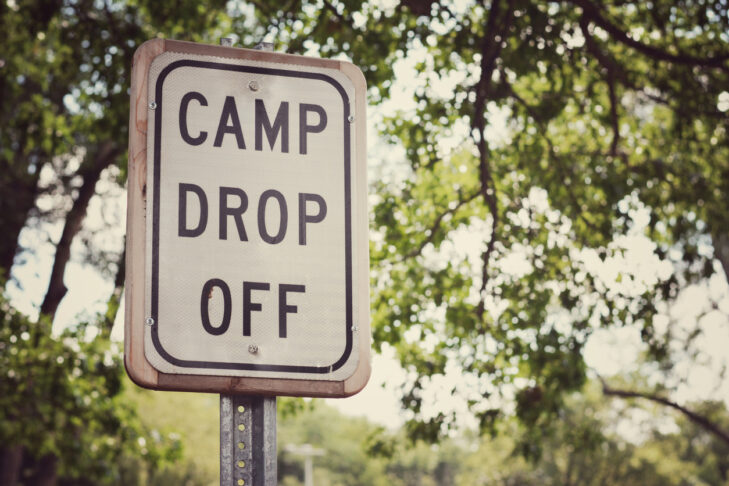Despite the snow—the snow!—summer is almost here. Are you approaching the warmer months tentatively, not sure what to expect? I am. My kids didn’t go to camp last summer. This summer, they’re enrolled, but I keep waiting for some horrible variant to sweep the country, shutting everything down again. It seems like almost too much to wish for: normalcy. But here we are.
If you’re tentatively betting on camp, like me, here’s some reassurance. I talked to Heather Greenberg from JCC North Shore’s KinderCamp and Leslie Hochstein, JCC Boston’s Camp Grossman director, about what to think about as summer approaches.
Educate yourself on protocol. Greenberg urges parents to ask the following of directors when making plans:
- What are your staff-to-camper ratios?
- What are your COVID-19 policies and procedures for social distancing and mask-wearing?
- How many kids will be in each group?
- What kind of activities will your camp be able to run in a pandemic? (For example, activities such as singing, with its spit, might be tougher to police. And will swim instructors wear masks and visors?)
- Will you stagger drop-off and pickup between cohorts?
“The last question I would ask is: How will this summer look with these provisions in place? Will it feel like a normal experience for kids at camp?” Greenberg asks.
Obviously, that’s the goal—but it’s important to be realistic.
Know the rules. Camps are required to abide by industry-wide guidelines as well as those implemented by their local boards of health.
It’s also important to remember that capacity is reduced for many camps to allow them to comply with ratios. At KinderCamp, for example, Greenberg can only accept 50% of their normal capacity—so they have 90 campers, max, as opposed to more than 150. (This is slightly more than they were allowed last year.)
Prepare for longer drop-offs. Your camper might also be asked questions, or attestations, each day: Have you had any COVID-19 symptoms? Have you been exposed to anybody who may have tested positive for COVID-19? Have you traveled outside the state or outside the country? Have you quarantined? Greenberg requires a negative COVID-19 test for any child to return to camp with any travel.
Get thee on a waitlist. Greenberg says that waitlists really do move, as families’ plans are fluid, especially this year. KinderCare’s affiliate program for older kids, Camp Simchah, has openings. She’s currently operating with a 20-person wait list, but there’s always a chance a family will drop out (and her staff carefully scrutinizes the lists, so a family without any weeks might be prioritized over a family who’s fully enrolled and wants to add more).
Better to overbook than under-book. “Just enroll for the summer, and then if you see your plans are changing and you have to drop a week, it’s better to drop, even if you lose the small deposit—because getting the weeks after is going to be a challenge in any summer programs because we’re so limited,” she cautions.
Hopefully, restrictions will relax over the coming months and capacity will increase, opening up more spaces.
Try an off week. At Camp Grossman, which was closed last summer, Hochstein says that the last two weeks in August (Week 8 and Week 9) still have space. Otherwise, a wait list has been growing since January. But, again, “There has been movement. People should still put their names on,” she says. Grossman usually has up to 900 campers per week; now it’s a maximum of roughly 600.
Remember why camp matters. If you’re uneasy about your child’s plans, that’s totally understandable. Reach out to the director. But also bear in mind the social and emotional benefits of camp.
“I feel very excited about camp because children need to get back in school. We’ll be able to give some sense of normalcy—but it also means a huge sense of responsibility to keep them safe and go and do that. It’s exciting and nerve-racking, is the bottom line,” Greenberg says.
Sound familiar?



